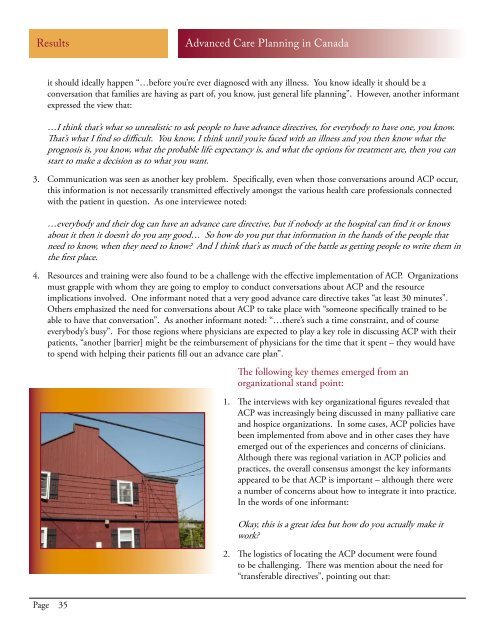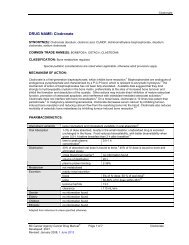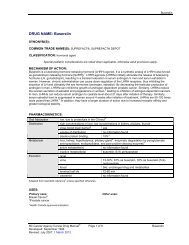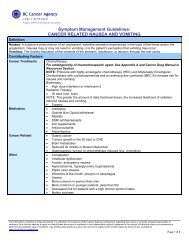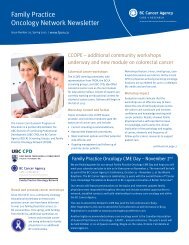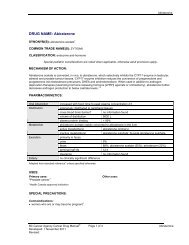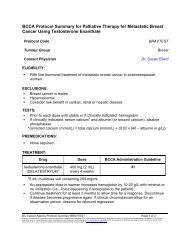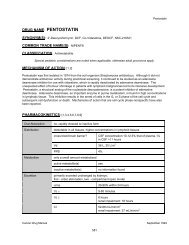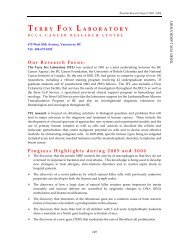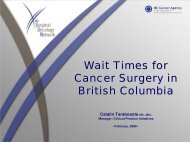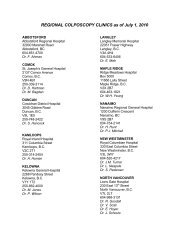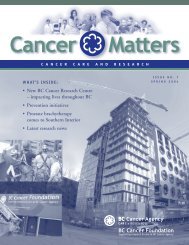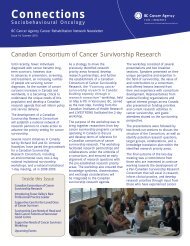Cross-Cultural Considerations in Promoting Advance Care Planning ...
Cross-Cultural Considerations in Promoting Advance Care Planning ...
Cross-Cultural Considerations in Promoting Advance Care Planning ...
Create successful ePaper yourself
Turn your PDF publications into a flip-book with our unique Google optimized e-Paper software.
Results<br />
<strong>Advance</strong>d <strong>Care</strong> Plann<strong>in</strong>g <strong>in</strong> Canada<br />
it should ideally happen “…before you’re ever diagnosed with any illness. You know ideally it should be a<br />
conversation that families are hav<strong>in</strong>g as part of, you know, just general life plann<strong>in</strong>g”. However, another <strong>in</strong>formant<br />
expressed the view that:<br />
…I th<strong>in</strong>k that’s what so unrealistic to ask people to have advance directives, for everybody to have one, you know.<br />
That’s what I f<strong>in</strong>d so difficult. You know, I th<strong>in</strong>k until you’re faced with an illness and you then know what the<br />
prognosis is, you know, what the probable life expectancy is, and what the options for treatment are, then you can<br />
start to make a decision as to what you want.<br />
3.<br />
Communication was seen as another key problem. Specifically, even when those conversations around ACP occur,<br />
this <strong>in</strong>formation is not necessarily transmitted effectively amongst the various health care professionals connected<br />
with the patient <strong>in</strong> question. As one <strong>in</strong>terviewee noted:<br />
…everybody and their dog can have an advance care directive, but if nobody at the hospital can f<strong>in</strong>d it or knows<br />
about it then it doesn’t do you any good… So how do you put that <strong>in</strong>formation <strong>in</strong> the hands of the people that<br />
need to know, when they need to know? And I th<strong>in</strong>k that’s as much of the battle as gett<strong>in</strong>g people to write them <strong>in</strong><br />
the first place.<br />
4.<br />
Resources and tra<strong>in</strong><strong>in</strong>g were also found to be a challenge with the effective implementation of ACP. Organizations<br />
must grapple with whom they are go<strong>in</strong>g to employ to conduct conversations about ACP and the resource<br />
implications <strong>in</strong>volved. One <strong>in</strong>formant noted that a very good advance care directive takes “at least 30 m<strong>in</strong>utes”.<br />
Others emphasized the need for conversations about ACP to take place with “someone specifically tra<strong>in</strong>ed to be<br />
able to have that conversation”. As another <strong>in</strong>formant noted: “…there’s such a time constra<strong>in</strong>t, and of course<br />
everybody’s busy”. For those regions where physicians are expected to play a key role <strong>in</strong> discuss<strong>in</strong>g ACP with their<br />
patients, “another [barrier] might be the reimbursement of physicians for the time that it spent – they would have<br />
to spend with help<strong>in</strong>g their patients fill out an advance care plan”.<br />
The follow<strong>in</strong>g key themes emerged from an<br />
organizational stand po<strong>in</strong>t:<br />
1.<br />
The <strong>in</strong>terviews with key organizational figures revealed that<br />
ACP was <strong>in</strong>creas<strong>in</strong>gly be<strong>in</strong>g discussed <strong>in</strong> many palliative care<br />
and hospice organizations. In some cases, ACP policies have<br />
been implemented from above and <strong>in</strong> other cases they have<br />
emerged out of the experiences and concerns of cl<strong>in</strong>icians.<br />
Although there was regional variation <strong>in</strong> ACP policies and<br />
practices, the overall consensus amongst the key <strong>in</strong>formants<br />
appeared to be that ACP is important – although there were<br />
a number of concerns about how to <strong>in</strong>tegrate it <strong>in</strong>to practice.<br />
In the words of one <strong>in</strong>formant:<br />
Okay, this is a great idea but how do you actually make it<br />
work?<br />
2.<br />
The logistics of locat<strong>in</strong>g the ACP document were found<br />
to be challeng<strong>in</strong>g. There was mention about the need for<br />
“transferable directives”, po<strong>in</strong>t<strong>in</strong>g out that:<br />
Page 35


